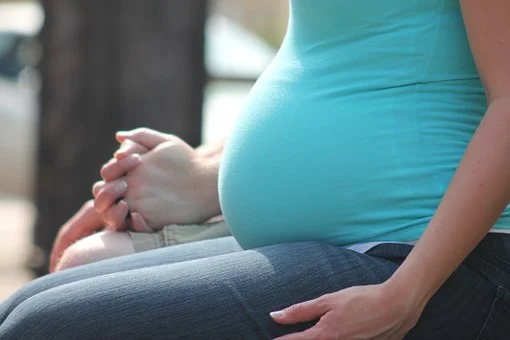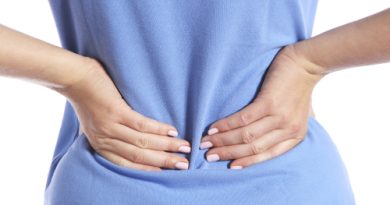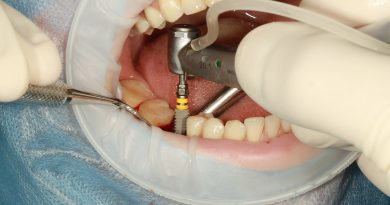A Guide to Early Pregnancy
The early days of pregnancy are filled with awe and wonder. It’s hard to imagine some days that there is a tiny body growing inside of you, yet at other times when morning sickness hits, it’s quite easy to believe.
For every woman, each pregnancy is a different experience, and often pregnancy symptoms can vary dramatically between first and second pregnancies. All that to say, no two pregnancies are alike. A woman may experience severe nausea in her first pregnancy and no nausea at all in her second (lucky her!).
Early pregnancy is often a stressful time in pregnancy. Too early to feel any movements and often sick, yet uncertain if she should tell anyone, the stress and fear about a pregnancy is a valid concern. On average, one out of every four pregnancies end in loss, and it’s an unfortunate occurrence that doctors and researchers still have not determined the answer to.
For most women though, pregnancy is a positive experience overall with a happy ending. And even for women who have experienced a loss, many go on to have happy, wonderful children.
About Pregnancy
Pregnancy is divided into three terms. The first trimester, from conception to twelve weeks, the second trimester from twelve to twenty-four weeks, and the third trimester occurs from twenty-four weeks on.
Conception
Conception occurs at fertilization of the egg cell by a sperm. Within a few days after fertilization begins, a tiny cluster of cells forms called a blastocyst. This blastocyst consists of an outer layer which will develop into the placenta and an inner cell mass which becomes the fetus (baby). Weeks later (about 8), blood vessels form connecting the placenta to the baby. The placenta will provide nourishment and oxygen to the baby while removing waste products.
The placenta is an amazing organ. It feeds, nourishes, and sustains your baby while in the womb. It is also the only time a body is able to grow an organ. By birth, the placenta will weigh around one pound, making it around 1/6th of the baby’s overall weight.
Trimester Breakdowns
The first trimester is a time of rapid growth and development for your baby. By the end of the first trimester, the fetus will be about 3 inches long and weigh only 1/2 ounce. You may not yet have begun to show, but your uterus will have grown from the size of a grapefruit to that of a lemon.
Around week 12 of pregnancy (the start of your 2nd Trimester), your baby is about 6 inches long and weighs almost 4 ounces. The placenta has grown to the size of a notebook cover. At this point, most babies are kicking energetically. You may not feel these movements yet, but they are probably apparent to everyone around you.
By the end of your 2nd trimester, your baby will have grown to almost 7 inches in length and weigh about an ounce over 1/2 pound. By the time you reach full term (about 38-40 weeks) , your baby will be 18-19 inches long and weigh close to 8 pounds.
Side Effects and Symptoms of Early Pregnancy
For many women, morning sickness is a difficult side effect of pregnancy. While not every woman experience morning sickness, many who do find it affects them throughout the day, not just in the morning. Additionally, it may mean that certain foods are difficult to digest or that medicines are hard to swallow. If you are constantly ill and unable to keep food down, contact your healthcare provider. You may have hyperemesis gravidarum and need to be under close supervision to ensure that you don’t lose too much weight or become dehydrated.
You may also notice that things taste funny since you got that first positive pregnancy test. From water to coffee, kale to potatoes, normal foods may have a slightly off taste and you may experience aversions to foods you typically eat and enjoy.
Extreme fatigue is another sign of early pregnancy. It makes sense when you consider that you’re growing a baby and another organ (the placenta). Experiencing fatigue may not be the worst side effect of pregnancy, but it can be debilitating, nonetheless. Again, if you find your fatigue to be interfering with your daily activities, contact your healthcare provider.
Cramping is a common early pregnancy symptom. Early pregnancy cramps feel identical to pregnancy cramps, making them a not helpful guide to answering the question of whether or not you’re pregnant. Pregnancy cramps occur for a variety of reasons and while most of them are nothing to worry about, if you experience strong and severe cramping, contact your doctor immediately.
Constantly needing to urinate is another symptom of early pregnancy. While annoying, drinking lots of water and frequent pee breaks help ward off UTI or other uncomfortable infections.
Wanting to Know the Sex in Your First Trimester?
Until recent decades, families had to wait until a child was born to know the sex. With the advent of ultrasound machines and even more extensive steps in equipment, families can easily find out their child’s sex in the early second trimester at their scan.
And early pregnancy scan will not tell parents the sex because it may not be visible at that time. If you’re extremely anxious and want to know the sex, there are tests available that gave a rather accurate result of your baby’s sex.
Physical and Mental Health
Your physical and mental health is of the utmost importance, especially in early pregnancy. Eating healthy foods, at least three meals a day, and healthy snacks should be your goal. If you’re unable to take in healthy foods, don’t freak out. Your body is capable and is very good at informing you what it needs during pregnancy. Listening to it is the best thing you can do.
Mental health is also an aspect of maternal care that needs attention. For many women, early pregnancy is nerve-wracking and terrifying. Speak to your doctor if you’re having unusual thoughts or are feeling depressed or blue. You may have anxiety or depression and in that case, there are pregnancy safe meds that you can take.
Conclusion
Early pregnancy is truly miraculous for each baby. Taking care of yourself, resting, eating well when possible, and talking with your healthcare provider are all steps you can take to help yourself through your pregnancy.





Pingback: Nooooooo, Don't You Kiss My Baby!! Think Twice Before Letting Strangers Kiss Your Baby